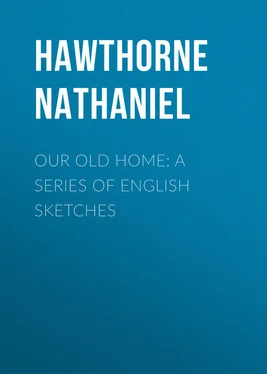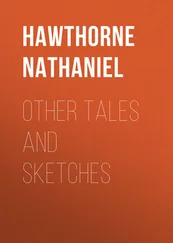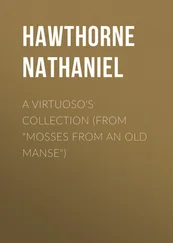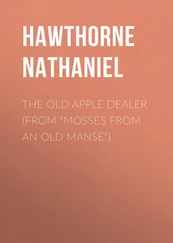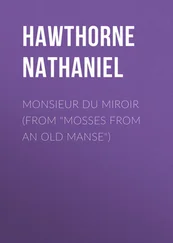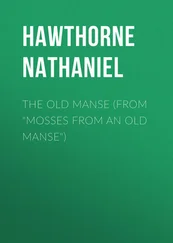Nathaniel Hawthorne - Our Old Home - A Series of English Sketches
Здесь есть возможность читать онлайн «Nathaniel Hawthorne - Our Old Home - A Series of English Sketches» — ознакомительный отрывок электронной книги совершенно бесплатно, а после прочтения отрывка купить полную версию. В некоторых случаях можно слушать аудио, скачать через торрент в формате fb2 и присутствует краткое содержание. Жанр: literature_19, foreign_antique, foreign_prose, на английском языке. Описание произведения, (предисловие) а так же отзывы посетителей доступны на портале библиотеки ЛибКат.
- Название:Our Old Home: A Series of English Sketches
- Автор:
- Жанр:
- Год:неизвестен
- ISBN:нет данных
- Рейтинг книги:4 / 5. Голосов: 1
-
Избранное:Добавить в избранное
- Отзывы:
-
Ваша оценка:
- 80
- 1
- 2
- 3
- 4
- 5
Our Old Home: A Series of English Sketches: краткое содержание, описание и аннотация
Предлагаем к чтению аннотацию, описание, краткое содержание или предисловие (зависит от того, что написал сам автор книги «Our Old Home: A Series of English Sketches»). Если вы не нашли необходимую информацию о книге — напишите в комментариях, мы постараемся отыскать её.
Our Old Home: A Series of English Sketches — читать онлайн ознакомительный отрывок
Ниже представлен текст книги, разбитый по страницам. Система сохранения места последней прочитанной страницы, позволяет с удобством читать онлайн бесплатно книгу «Our Old Home: A Series of English Sketches», без необходимости каждый раз заново искать на чём Вы остановились. Поставьте закладку, и сможете в любой момент перейти на страницу, на которой закончили чтение.
Интервал:
Закладка:
Sitting, as it were, in the gateway between the Old World and the New, where the steamers and packets landed the greater part of our wandering countrymen, and received them again when their wanderings were done, I saw that no people on earth have such vagabond habits as ourselves. The Continental races never travel at all if they can help it; nor does an Englishman ever think of stirring abroad, unless he has the money to spare, or proposes to himself some definite advantage from the journey; but it seemed to me that nothing was more common than for a young American deliberately to spend all his resources in an aesthetic peregrination about Europe, returning with pockets nearly empty to begin the world in earnest. It happened, indeed, much oftener than was at all agreeable to myself, that their funds held out just long enough to bring them to the door of my Consulate, where they entered as if with an undeniable right to its shelter and protection, and required at my hands to be sent home again. In my first simplicity, – finding them gentlemanly in manners, passably educated, and only tempted a little beyond their means by a laudable desire of improving and refining themselves, or, perhaps for the sake of getting better artistic instruction in music, painting, or sculpture than our country could supply, – I sometimes took charge of them on my private responsibility, since our government gives itself no trouble about its stray children, except the seafaring class. But, after a few such experiments, discovering that none of these estimable and ingenuous young men, however trustworthy they might appear, ever dreamed of reimbursing the Consul, I deemed it expedient to take another course with them. Applying myself to some friendly shipmaster, I engaged homeward passages on their behalf, with the understanding that they were to make themselves serviceable on shipboard; and I remember several very pathetic appeals from painters and musicians, touching the damage which their artistic fingers were likely to incur from handling the ropes. But my observation of so many heavier troubles left me very little tenderness for their finger-ends. In time I grew to be reasonably hard-hearted, though it never was quite possible to leave a countryman with no shelter save an English poorhouse, when, as he invariably averred, he had only to set foot on his native soil to be possessed of ample funds. It was my ultimate conclusion, however, that American ingenuity may be pretty safely left to itself, and that, one way or another, a Yankee vagabond is certain to turn up at his own threshold, if he has any, without help of a Consul, and perhaps be taught a lesson of foresight that may profit him hereafter.
Among these stray Americans, I met with no other case so remarkable as that of an old man, who was in the habit of visiting me once in a few months, and soberly affirmed that he had been wandering about England more than a quarter of a century (precisely twenty-seven years, I think), and all the while doing his utmost to get home again. Herman Melville, in his excellent novel or biography of "Israel Potter," has an idea somewhat similar to this. The individual now in question was a mild and patient, but very ragged and pitiable old fellow, shabby beyond description, lean and hungry-looking, but with a large and somewhat red nose. He made no complaint of his ill-fortune, but only repeated in a quiet voice, with a pathos of which he was himself evidently unconscious, "I want to get home to Ninety-second Street, Philadelphia." He described himself as a printer by trade, and said that he had come over when he was a younger man, in the hope of bettering himself, and for the sake of seeing the Old Country, but had never since been rich enough to pay his homeward passage. His manner and accent did not quite convince me that he was an American, and I told him so; but he steadfastly affirmed, "Sir, I was born and have lived in Ninety-second Street, Philadelphia," and then went on to describe some public edifices and other local objects with which he used to be familiar, adding, with a simplicity that touched me very closely, "Sir, I had rather be there than here!" Though I still manifested a lingering doubt, he took no offence, replying with the same mild depression as at first, and insisting again and again on Ninety-second Street. Up to the time when I saw him, he still got a little occasional job-work at his trade, but subsisted mainly on such charity as he met with in his wanderings, shifting from place to place continually, and asking assistance to convey him to his native land. Possibly he was an impostor, one of the multitudinous shapes of English vagabondism, and told his falsehood with such powerful simplicity, because, by many repetitions, he had convinced himself of its truth. But if, as I believe, the tale was fact, how very strange and sad was this old man's fate! Homeless on a foreign shore, looking always towards his country, coming again and again to the point whence so many were setting sail for it, – so many who would soon tread in Ninety-second Street, – losing, in this long series of years, some of the distinctive characteristics of an American, and at last dying and surrendering his clay to be a portion of the soil whence he could not escape in his lifetime.
He appeared to see that he had moved me, but did not attempt to press his advantage with any new argument, or any varied form of entreaty. He had but scanty and scattered thoughts in his gray head, and in the intervals of those, like the refrain of an old ballad, came in the monotonous burden of his appeal, "If I could only find myself in Ninety-second Street, Philadelphia!" But even his desire of getting home had ceased to be an ardent one (if, indeed, it had not always partaken of the dreamy sluggishness of his character), although it remained his only locomotive impulse, and perhaps the sole principle of life that kept his blood from actual torpor.
The poor old fellow's story seemed to me almost as worthy of being chanted in immortal song as that of Odysseus or Evangeline. I took his case into deep consideration, but dared not incur the moral responsibility of sending him across the sea, at his age, after so many years of exile, when the very tradition of him had passed away, to find his friends dead, or forgetful, or irretrievably vanished, and the whole country become more truly a foreign land to him than England was now, – and even Ninety-second Street, in the weedlike decay and growth of our localities, made over anew and grown unrecognizable by his old eyes. That street, so patiently longed for, had transferred itself to the New Jerusalem, and he must seek it there, contenting his slow heart, meanwhile, with the smoke-begrimed thoroughfares of English towns, or the green country lanes and by-paths with which his wanderings had made him familiar; for doubtless he had a beaten track and was the "long-remembered beggar" now, with food and a roughly hospitable greeting ready for him at many a farm-house door, and his choice of lodging under a score of haystacks. In America, nothing awaited him but that worst form of disappointment which comes under the guise of a long-cherished and late-accomplished purpose, and then a year or two of dry and barren sojourn in an almshouse, and death among strangers at last, where he had imagined a circle of familiar faces. So I contented myself with giving him alms, which he thankfully accepted, and went away with bent shoulders and an aspect of gentle forlornness; returning upon his orbit, however, after a few months, to tell the same sad and quiet story of his abode in England for more than twenty-seven years, in all which time he had been endeavoring, and still endeavored as patiently as ever, to find his way home to Ninety-second Street, Philadelphia.
I recollect another case, of a more ridiculous order, but still with a foolish kind of pathos entangled in it, which impresses me now more forcibly than it did at the moment. One day, a queer, stupid, good-natured, fat-faced individual came into my private room, dressed in a sky-blue, cut-away coat and mixed trousers, both garments worn and shabby, and rather too small for his overgrown bulk. After a little preliminary talk, he turned out to be a country shopkeeper (from Connecticut, I think), who had left a flourishing business, and come over to England purposely and solely to have an interview with the Queen. Some years before he had named his two children, one for her Majesty and the other for Prince Albert, and had transmitted photographs of the little people, as well as of his wife and himself, to the illustrious godmother. The Queen had gratefully acknowledged the favor in a letter under the hand of her private secretary. Now, the shopkeeper, like a great many other Americans, had long cherished a fantastic notion that he was one of the rightful heirs of a rich English estate; and on the strength of her Majesty's letter and the hopes of royal patronage which it inspired, he had shut up his little country-store and come over to claim his inheritance. On the voyage, a German fellow-passenger had relieved him of his money on pretence of getting it favorably exchanged, and had disappeared immediately on the ship's arrival; so that the poor fellow was compelled to pawn all his clothes, except the remarkably shabby ones in which I beheld him, and in which (as he himself hinted, with a melancholy, yet good-natured smile) he did not look altogether fit to see the Queen. I agreed with him that the bobtailed coat and mixed trousers constituted a very odd-looking court-dress, and suggested that it was doubtless his present purpose to get back to Connecticut as fast as possible. But no! The resolve to see the Queen was as strong in him as ever; and it was marvellous the pertinacity with which he clung to it amid raggedness and starvation, and the earnestness of his supplication that I would supply him with funds for a suitable appearance at Windsor Castle.
Читать дальшеИнтервал:
Закладка:
Похожие книги на «Our Old Home: A Series of English Sketches»
Представляем Вашему вниманию похожие книги на «Our Old Home: A Series of English Sketches» списком для выбора. Мы отобрали схожую по названию и смыслу литературу в надежде предоставить читателям больше вариантов отыскать новые, интересные, ещё непрочитанные произведения.
Обсуждение, отзывы о книге «Our Old Home: A Series of English Sketches» и просто собственные мнения читателей. Оставьте ваши комментарии, напишите, что Вы думаете о произведении, его смысле или главных героях. Укажите что конкретно понравилось, а что нет, и почему Вы так считаете.
